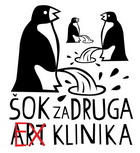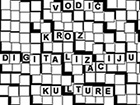Balsa Brkovic: The Eros of rebellion is indestructible
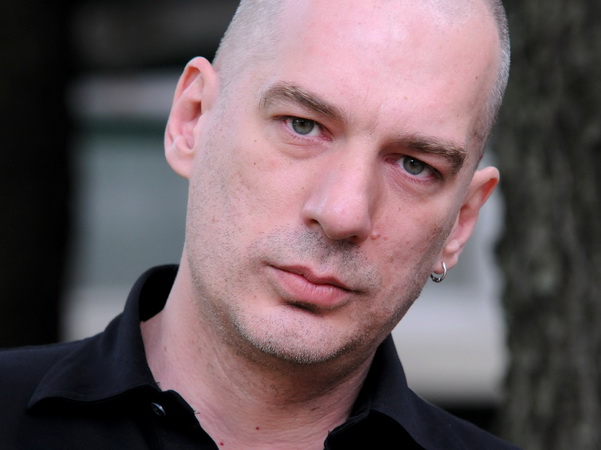
Montenegrin writer and poet Balsa Brkovic believes that the worst legacy of the pandemic is that it has led to excessive fear, which usually turns people into insensitive and wild creatures, but also that it has fueled all possible populism and nonsense. In an interview with SEEcult.org, as one of the disturbing experiences of the pandemic, Brkovic states the media mediation of reality.
"The pandemic has led to an unusual confrontation with the near future. A German art historian put it nicely: "What seemed impossible to us until yesterday, seems inevitable today." The world has changed significantly in these two years. The positive change is that Montenegrins changed the habits when meeting a friend. These used to be obligatory kisses, hugs, a kind of street socializing... You can't see that today. That is at least one benefit of the Covid. What was interesting was a kind of outline of dystopia, during sports events without an audience. Such events, when they are exclusively media-mediated, when they do not have real viewers, call into question the very status of testimony as such. What is actually happening and how? You have to trust the media image. It was one of the most disturbing experiences of pandemic reality. The best thing is that the loser routine of blossoming capitalism has been shaken, and the worst thing is the excessive fear that, as a rule, turns people into insensitive and wild creatures. The pandemic also gave impetus and fuel to all possible populisms, but also to nonsense as such. Anti-vaccination activists, internet experts and amateurs of all kinds welcomed their moment. Today, stupidity seems more invasive than before, because you used to have social mechanisms that make stupidity somewhat more invisible or marginal ... Today it is not like that", stated Brkovic.
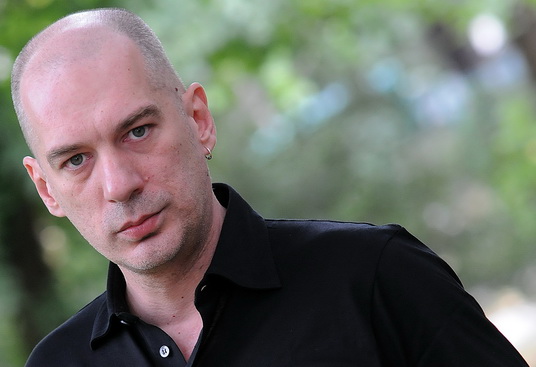
The poet, who in the 1990s was part of Montenegrin intellectuals who opposed war cries, believes that no country in the region even before the Covid had a serious and sustainable cultural policy that would encourage social evolution and make society better. According to Brkovic, current cultural policies hold society hostage to the most ordinary conservatism.
"The problem is that the modernization of our societies has been abruptly stopped, and in that case we can't even talk about cultural policies. It is more about action plans, national programs, political overturnings. Slovenia and, in part, Croatia, thanks to the European experience, still went significantly further than the rest of the region. But that should not frustrate anyone, it is a reason to hurry elsewhere and find a valid way to change cultural policy. Look at Montenegro - first we had a court-commissioner concept of culture, where the national commissioners measured whether you were for Montenegro or against, even though it was actually about one party and not Montenegro. Then came the national-church commissioners - orthodoxy is measured again and others are discriminated against. This spiral of banality must be broken. When that happens, it will be a true cultural festivity ... ", believes Brkovic, who is the author, among other things, of the exceptional novel "Paranoia in Podgorica".
In his opinion, the pandemic has shown that the lack of performances, exhibitions, literary evening gatherings - the authorities in Montenegro and beyond, consider the least problematic.
"They would gladly, even without Covid, reduce all that to a minimum. The bottom line is - does anyone really miss it? Do the citizens have a way to clearly state that they lack it, that it is all necessary. Of course, many people miss it, but many have agreed to this alleged dictate of force majeure. It is especially easy to agree when the victim is culture. Authorities do not depend on artists anywhere, that is why they do not turn to them in such times. In these two Covid years, I often had the feeling that the authorities were relieved that an entire social segment had disappeared", said Brkovic.
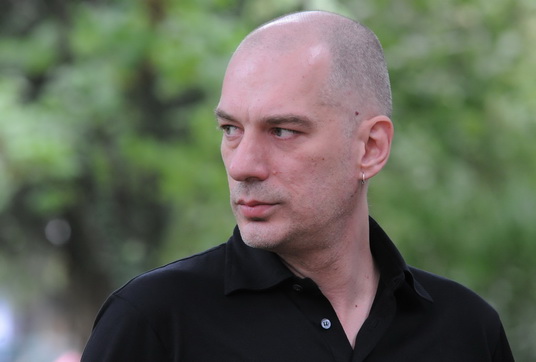
Brkovic believes that the entire history of the region could be written as an attempt to establish essential literacy among nations that raise orality above anything else.
"As long as they call themselves war criminals, as long as lies are the most popular flag, it will be like that - the cruel domination of orality. And what is in the orality, does not even belong to history - those are the murky limbos of parahistorical consciousness. But our people feel at home here. Instead of discussion, instead of dialogue, here it is easier for people to decide to go with the flow. And then everything is as it should be. And when you go with the flow, you are no longer your own. And that is the essence", stated Brkovic, who wrote the novel "Aurora", plot of which takes place in 1932 in Podgorica. It is a story about visionaries, strong women and chess...
The entire interview (in Serbian) can be found on this link.
*Photo: Vesko Belojević
(SEEcult.org)
Funded by the International Relief Fund for Organisations in Culture and Education 2021 of the German Federal Foreign Office, the Goethe-Institut and other partners, goethe.de/relieffund






